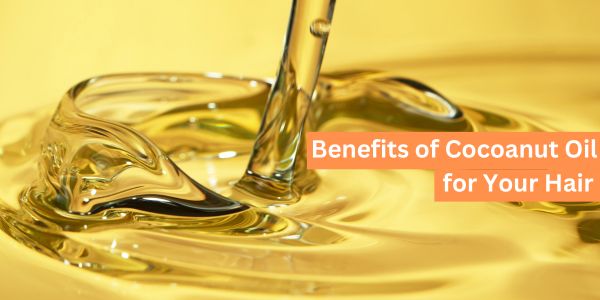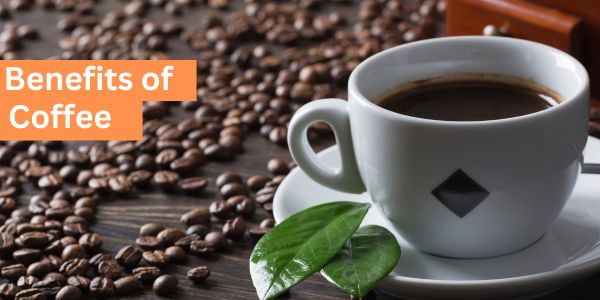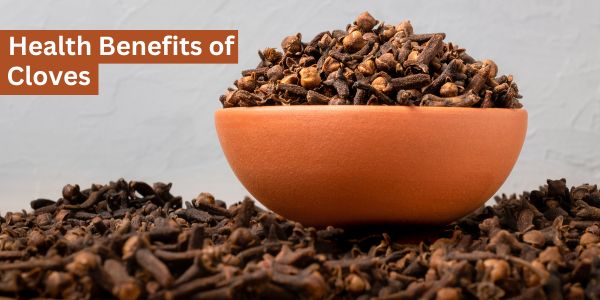Introduction
Hey there, sandwich enthusiasts! You know, some things in life just go together perfectly, like peanut butter and jelly, like Batman and Robin, or like that one friend who always remembers to bring snacks on a road trip.
PB&J sandwiches have been delighting taste buds and fueling generations since 1901, when Boston Cooking School Magazine first shared the simple yet magical recipe with the world. But what if I told you that your childhood favorite could also be a secret weapon for your health?
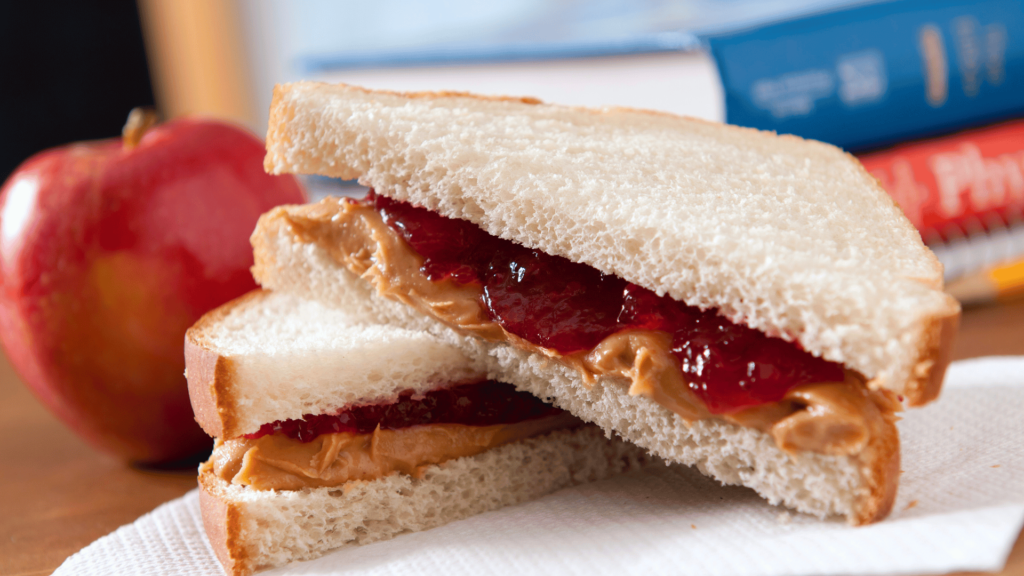
That’s right, eating a peanut butter and jelly sandwich every day for a month might just surprise you with its many benefits. So, in today’s writeup, we’re going to break down the dynamic duo of PB&J and uncover the impressive ways these two humble ingredients can support your well-being.
Oh, and before we start, here’s the responsible disclaimer: If you have dietary restrictions, allergies, or any concerns about your health, always consult with a dietitian or healthcare professional before making any major changes to your diet. Cool? Cool. Now, let’s dive in!
The Power of Peanut Butter
First up: peanut butter! It’s creamy (or crunchy, if that’s your jam), packed with nutrients, and has been a pantry staple for ages. But what exactly makes it so great? Let’s take a closer look.
1. Protein-Packed Goodness

Peanut butter is a true powerhouse when it comes to plant-based protein. Just two tablespoons (about 32 grams) deliver around 8 grams of protein, making it a great ally for muscle repair and growth. Whether you’re hitting the gym or just lifting your grocery bags like a pro, your body will thank you.
A study published in The Journal of the American Medical Association found that consuming peanut butter regularly was associated with a lower risk of developing type 2 diabetes.
2. Fiber for the Win

Did you know that peanut butter also has fiber? Yep! With about 2 grams per serving, it not only keeps your digestive system moving smoothly but also helps keep you feeling full longer. No more unnecessary snack attacks between meals!
3. A Heart’s Best Friend

Yes, peanut butter contains fats, but fear not! The majority of these are heart-healthy monounsaturated fats that help lower bad cholesterol (LDL) and boost the good kind (HDL). Plus, it’s packed with oleic acid, which has been linked to improved insulin sensitivity and better heart health overall.
A study published in Diabetes Care reported that oleic acid significantly reduces insulin resistance by lowering endoplasmic reticulum stress, increasing mitochondrial oxidation, and reducing inflammation.
Also Read: 10 Superfoods That Keep Your Thyroid Humming
In a clinical trial involving 16 healthy adults, adding 2 tablespoons of peanut butter to a high-carb meal resulted in a 15.2 mg/dL reduction in post-meal blood glucose levels compared to a meal without peanut butter (American Journal of Clinical Nutrition, 2002). Not too shabby for a simple spread, right?
4. Bone-Boosting Minerals

Peanut butter doesn’t just support muscles, it’s also a friend to your bones! It’s a good source of phosphorus and magnesium, which work together to keep bones strong and help the body absorb calcium effectively. And let’s not forget copper, an essential mineral for maintaining bone density and overall health.
A study in Osteoporosis International found that postmenopausal women who supplemented with 3 mg of copper daily for 22 months experienced significantly reduced vertebral bone mineral density loss. So, in a way, peanut butter could be your delicious ally in long-term bone health.
5. A Helping Hand for Weight Management
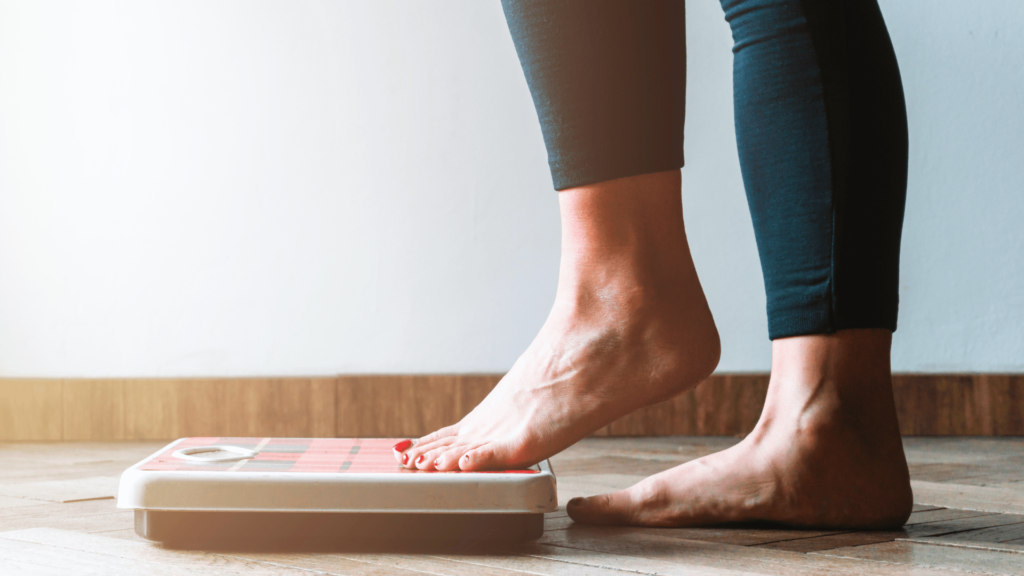
Wait, peanut butter and weight loss? That sounds like a contradiction, right? But hear me out. Thanks to its healthy fats and protein combo, peanut butter can help curb cravings and promote satiety.
A study in The American Journal of Clinical Nutrition compared a weight-loss plan that included consuming 35 grams of peanuts before two main meals daily to a traditional low-fat diet.
But here’s the kicker, only the peanut butter group showed a significant drop in systolic blood pressure! So, while moderation is key (because those calories do add up), peanut butter can actually be part of a balanced diet.
6. Enhances Nutrient Absorption

Peanut butter doesn’t just bring its own nutrients to the table; it helps your body absorb others, too! It contains monounsaturated fats that aid in the absorption of fat-soluble vitamins (A, D, E, and K). Plus, it’s packed with bioactive compounds like resveratrol and flavonoids that support overall health and may even help lower cholesterol absorption.
A Harvard Medical School study found that men who consumed 5 or more servings of nuts weekly had a significantly lower risk of gallstone disease than those who rarely ate nuts.
So, next time you’re spreading that peanut butter on your toast, just know you might be doing your gallbladder a favor!
The Joy of Jelly
Now that we’ve gushed about peanut butter, let’s shift our focus to its sweet, fruity counterpart: jelly! Whether it’s grape, strawberry, or any other favorite flavor, jelly adds that perfect touch of sweetness to a PB&J. But did you know it can also offer some health benefits?
1. Antioxidant-Rich Goodness
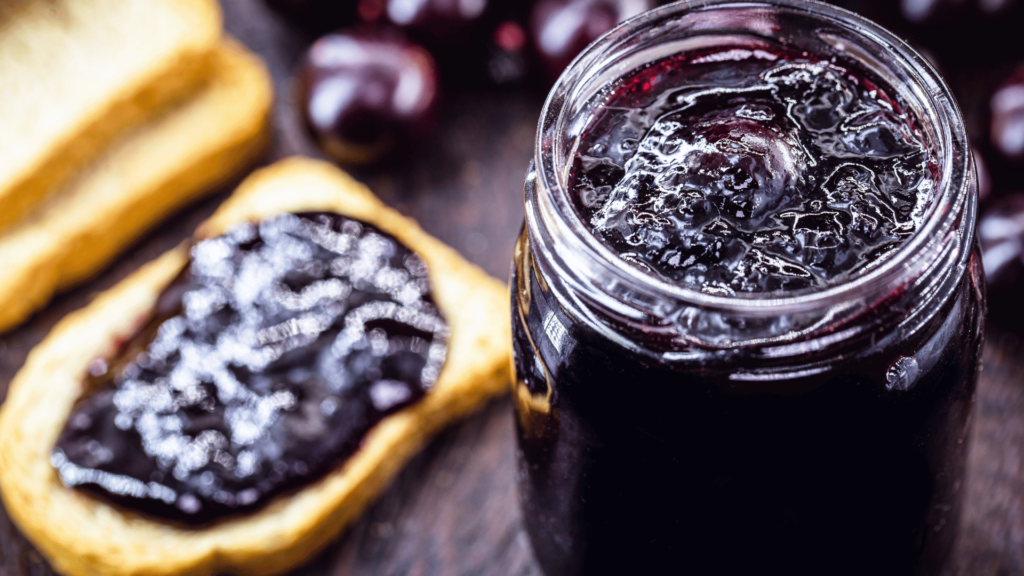
Jelly made from high-quality fruits, like berries and grapes—is loaded with antioxidants, including flavonoids and polyphenols. These compounds help combat oxidative stress in the body, potentially reducing the risk of chronic diseases like heart disease and even certain types of cancer.
A study in The Journal of Nutritional Biochemistry found that consuming anthocyanin-rich mulberry jelly for one week significantly improved insulin sensitivity in 16 participants who ate it alongside a high-fat meal.
Also Read: 9 Essential Foods To Fuel Your Body Before A Fast
The researchers credited the anthocyanins (a type of antioxidant) in the berries for this benefit. So, next time you spread that jelly on your sandwich, just know you’re also spreading a little extra health onto your plate!
2. A Sweet Source of Natural Energy

Let’s talk about the sweet side of PB&J, jelly! Jelly isn’t just there to add that delicious fruity punch to your sandwich; it also contains natural sugars that provide a quick and easily digestible source of energy.
Since it’s made from fruit, it retains some of the natural fructose and glucose, which can help perk you up when you need a little boost. Think of it as nature’s version of an energy drink, without the scary ingredient list!
Of course, we all know that excessive added sugar isn’t ideal for our health, but moderate consumption of natural sugars from fruit-based jelly? That’s a different story. A well-balanced diet can certainly include a little natural sweetness.
In fact, a study published in Appetite Journal examined the effects of consuming fruit-based spreads on energy levels. The results? Participants who included a moderate amount of fruit jelly in their breakfast reported sustained energy throughout the morning compared to those who skipped it. That’s right, your PB&J could be the secret to avoiding that mid-morning slump!
3. Supports a Happy Gut

Good digestion is the key to feeling great, and believe it or not, certain types of fruit jellies can help keep your gut in tip-top shape. That’s because some fruit jellies contain pectin, a natural fiber found in fruit.
Pectin is a type of soluble fiber, which means it dissolves in water and works wonders for your digestive system. It helps regulate bowel movements, supports a healthy gut microbiome, and may even play a role in lowering cholesterol levels.
In a research study published in Food & Function, participants who consumed pectin-enriched fruit jelly experienced improved gut microbiota balance. The presence of beneficial bacteria increased, promoting better digestion, reducing bloating, and even improving overall gut health. So, in a way, your jelly isn’t just a sweet treat, it’s also a little helper for your digestive system!
4. Packed with Vitamin C Power
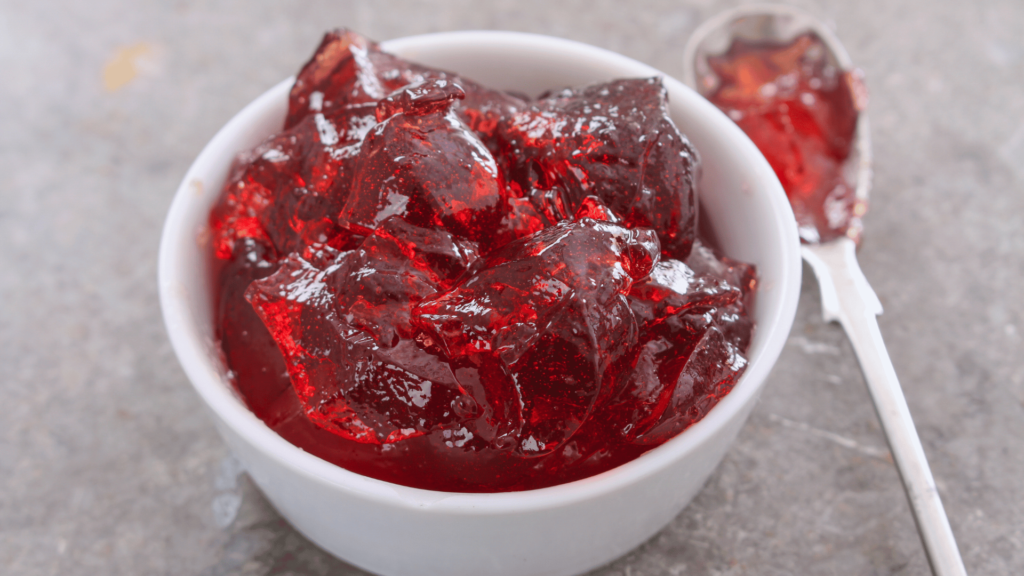
If you’re a fan of citrusy or berry-flavored jellies, you’re in for a bonus health benefit: vitamin C! Many fruit-based jellies, especially those made from oranges, strawberries, or other vitamin C-rich fruits, contain this essential nutrient, which plays a crucial role in immune function, skin health, and collagen production.
A British Journal of Nutrition study found that individuals who regularly consumed vitamin C-rich foods, including fruit spreads, had improved immune function and a lower incidence of common colds. And let’s not forget, vitamin C is also a powerful antioxidant, meaning it helps protect your cells from oxidative damage and keeps you feeling your best.
Conclusion
A peanut butter and jelly sandwich may seem like a simple, childhood classic, but as we’ve seen, it’s actually packed with a variety of health benefits, if you make the right choices. Peanut butter delivers heart-healthy fats, protein, fiber, and essential vitamins and minerals that support muscle growth, cardiovascular health, and overall well-being.
Meanwhile, jelly, especially when made from high-quality fruit sources, brings antioxidants, natural sugars, pectin, and vitamin C to the table, giving your immune system and digestive health a helping hand.
That said, not all PB&Js are created equal. To truly reap the benefits, opt for natural peanut butter without added sugars or hydrogenated oils, and choose fruit preserves or jelly with minimal added sugars. Making small, mindful choices can turn this beloved sandwich from a sugary indulgence into a truly nutritious meal.
So, the next time you bite into a PB&J, know that you’re not just indulging in nostalgia, you’re giving your body some real benefits. Just remember: moderation is key, and as always, check in with a healthcare professional before making major dietary changes.


